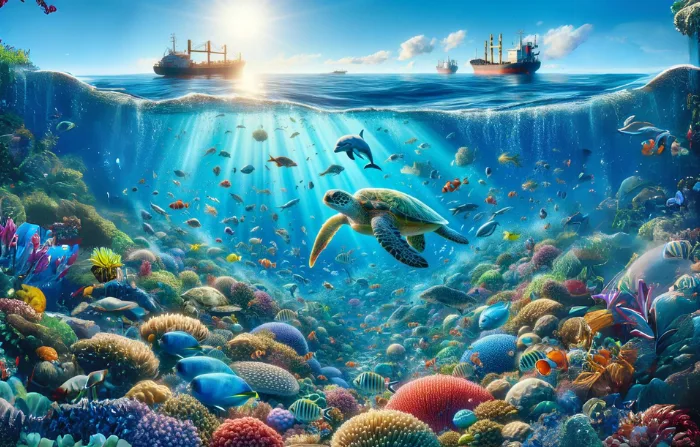Oceans are crucial for our planet. But they’re in trouble because of us. Good news: a new study says saving them might be cheaper and easier than we thought if we just stop overcomplicating it.
A Smarter Way to Save Our Seas
Scientists have a new plan to protect oceans. It’s about being smart, not just spending more money. They want to create Marine Protected Areas (MPAs) that don’t hurt important activities like fishing, shipping, and mining too much. This way, we can save the ocean without causing too much trouble for these industries.
Professor Anthony Richardson from the University of Queensland explains, “We’re seeing more interest in areas like the high seas. Traditional ways of protecting the ocean looked at each activity – like fishing or mining – separately. But this can lead to problems because each activity affects the ocean in different ways.”

Working Together for the Ocean
The researchers looked at the Indian Ocean as a test. They made plans for MPAs that focused on fishing, shipping, and mining. Then, they tried something new.
They made a plan that considered all these activities together. This way, they could protect the ocean while keeping the costs for these industries lower.
Léa Fourchault from the Royal Belgian Institute of Natural Sciences shares some numbers. “In our new plan, the fishing industry might lose 20% of potential revenue. But, with separate plans for each activity, they could lose up to 54%. It’s similar for shipping and mining. They lose much less with our joint plan.”
Smaller MPAs, Bigger Impact
Here’s the cool part: this new method might mean smaller MPAs, but with the same protection for ocean life. Instead of covering 25% of the ocean, these MPAs could cover just 8%. This means less space is off-limits to industries, but the important parts of the ocean still get protected.
Saving Money and the Ocean
So, where are the savings? By working together and planning better, we don’t have to set aside as much ocean area. This means industries like fishing and shipping can keep working without losing too much money. And the ocean still gets the protection it needs.
The researchers think this approach could help with the United Nations High Seas Treaty. It’s about protecting the ocean in a way that works for everyone.

Making Ocean Protection Work for Everyone
More To Discover
- 15 Major Issues Impacting Biodiversity in 2024: What You Need to Know, Summarized
- Nestle, Kellogg’s and Colgate Palm Oil Supplier Deforested 50 Square Miles Of Peru’s Amazon Rainforest
- Coal’s Countdown: G7 Sets a Deadline, But Don’t Get Too Excited
- The Push to Grant Nature Legal Rights Just Took A Huge Step Forward In Panama
This study shows us a new way to save our oceans. It’s about being smart with our plans and working together. We can protect the ocean and still let important activities like fishing and shipping happen. This way, everyone wins – the ocean, the industries, and us.
Source: One Earth



















